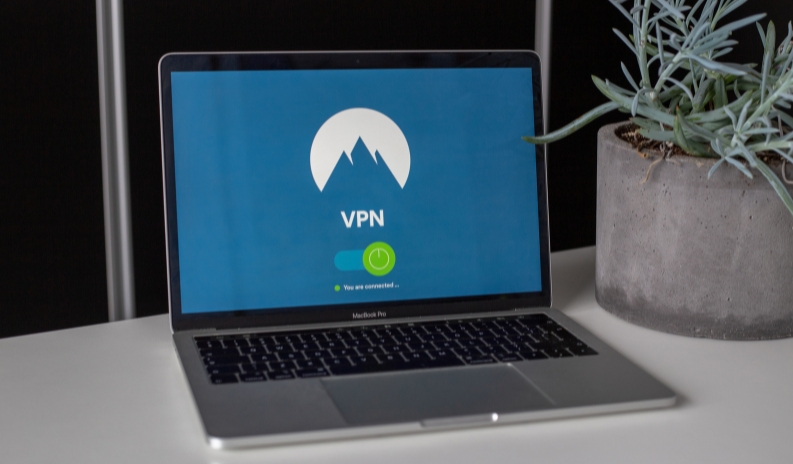How Does A VPN Work? Understanding Virtual Private Networks
by Ankita Tripathy Business Security Systems Published on: 14 April 2022 Last Updated on: 20 May 2025

When you’re at home or the office, you probably have some decent cybersecurity measures in place. Maybe you’re using a professional-grade antivirus program or just using the basic defender programs that came with your computer.
If you’re running a business, you’ll undoubtedly have your computers behind a firewall. Firewalls are an ideal security measure that prevents unauthorized users from accessing your network or computer. But where’s the encryption, additional security layers, and privacy protection?
For those, you’ll need a virtual private network or VPN. Virtual Private Networks provide privacy and security while you’re online. Whether it’s going online in public places that have unsecured internet connections or browsing the web/sending emails, VPNs are vital for working online today.
Here’s A Guide to Understanding Virtual Private Networks
This step-by-step guide will help you understand how a VPN works. Follow this to know more:
1. What is A Virtual Private Network?
At its core, a VPN is merely a virtual private network that sends your web traffic through a tunnel, encrypts the data, and makes the destination website think it’s being accessed from a different location than your own.
Virtual Private Networks exist as stand-alone programs that often utilize a subscription model or as proxy services that are built into a browser.
Each of these has its own pros and cons, but keep in mind that a VPN will generate privacy while a proxy server merely anonymizes data.
Virtual Private Networks can range anywhere from being a stripped-down privacy service to having loads of unique features such as no bandwidth restrictions, malware protection, and the ability to be used across multiple devices.
Related Resource: 5 Types of Cyberattacks and How to Protect Your Business Data
2. How Does A VPN Work?

Virtual Private Networks work by routing all of your data through an encrypted tunnel. This essentially obscures your IP address, making it hard to see what you’re doing online.
VPNs have servers at different spots around the world, which makes it easier to obscure traffic and improve the bandwidth of your connection.
Virtual Private Networks are usually scalable and can be used across multiple devices. There are different kinds of VPNs, as well, so you’ll need to do some minor research to find the most suitable one. Setting them up is easy, too. For standalone VPNs and VPN subscriptions, you’ll need to enable them on your device.
Usually, this involves heading over to your computer or device’s settings and selecting “Add VPN Configuration” (or similar options; operating systems will have different wording for the same basic functions).
After that, you just need to add your VPN. Once you’ve got your VPN set up, it’s time to start browsing the web in perfect privacy!
3. Privacy
VPNs use various encryption methods to ensure your privacy. From social media to e-commerce websites, literally, everywhere you go online is interested in learning more about you and your buying habits. Most of the time, this is to collect data to use for marketing purposes.
Other times, the purposes might be a little bit more nefarious. That’s why it’s so important to fight back to regain your privacy online. A powerful pro-VPN is the most direct route to retaining that privacy.
With a vast array of useful features, 24-hour support, seven days a week, and even more amenities, these VPN services are something worthwhile for even the most casual internet user.
Maintaining your privacy and having a very fast internet connection while doing so are all wonderful things a VPN can provide whenever you use one of your devices.
4. Geo-blocking

Have you ever wanted to catch the latest episode of The Great British Bake-Off or another program, only to find it’s geo-blocked in your region? It’s happened to plenty of us since the dawn of the streaming area.
Luckily, a VPN can get around geo-blocking by shuffling and routing traffic through different locations around the world. Oftentimes, content gets geo-blocked due to rights issues, licensing, censorship, or some other reason.
The ability to access anything from everywhere is definitely a perk of a VPN. It can be helpful for secure reporting and privacy concerns if you’re in an area that decides to block or restrict access to certain types of media. Whatever the reason you need to access geographically restricted content, your VPN should be able to help.
5. Web Threat Protection
Web threats manifest themselves in myriad forms, sometimes familiar and other times at random. Protecting yourself from threats like viruses, malware, and phishing attempts requires a combination of security methods, including a VPN.
A VPN can help protect you from possibly malicious sites, guard your passwords, and encrypt your data as you browse if you’re on an unsecured public network.
That’s because it takes what is basically an unprotected connection and adds some security to it. Some VPNs do have built-in threat protection as part of an overall security package, so it may be best to opt for one of those if you’re looking to have more than just a private network.
How Does VPN Protect My Business?

Now that you know how a VPN works, it will be easier for you to realize that your business needs it. No matter if you have international or national clients – conducting your business online means your system is vulnerable.
When you use a business VPN, you ensure there is secure access for your employees to the internal networks. This is also known as an intranet which is secure with VPN. When you use a business VPN, there is a unique shared network between the offices in multiple locations and employees.
The primary goal of business VPN is to prevent sensitive company data from being under attack.
From what you know so far about how it works – there is a channel that is protected from people outside your company’s network. This means a tough time for hackers to access your company’s secure, special intranet. Unless you give them access by clicking on a suspicious link or downloading something from that link.
Heads up – don’t do it unless you are 100% sure it’s from a trusted source. If you have doubts, contact your IT head to get clearance.
Wrapping It Up, Securely!
That was all about how a VPN works and its different aspects – from personal use to business purposes, everything the VPN protects. With the help of a VPN, you can ensure there is a fully secure connection that cannot be breached by hackers.
If you are a business concerned about its sensitive data, make sure to apply a business VPN that keeps the server and intranet secure. Applying a business VPN will keep your networks secure and robust, even if you have remote employees working away.
Read Also:



































































































